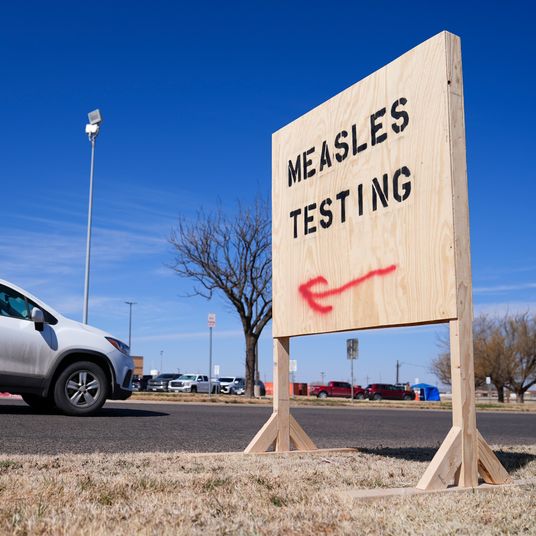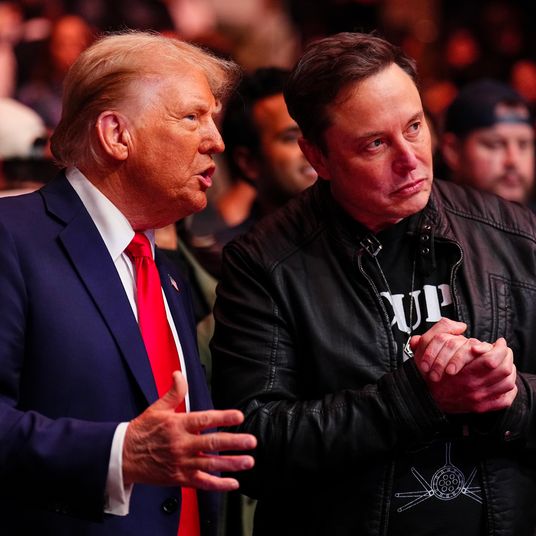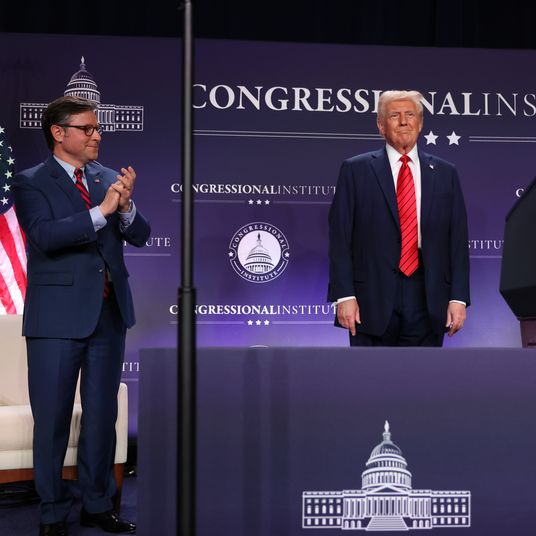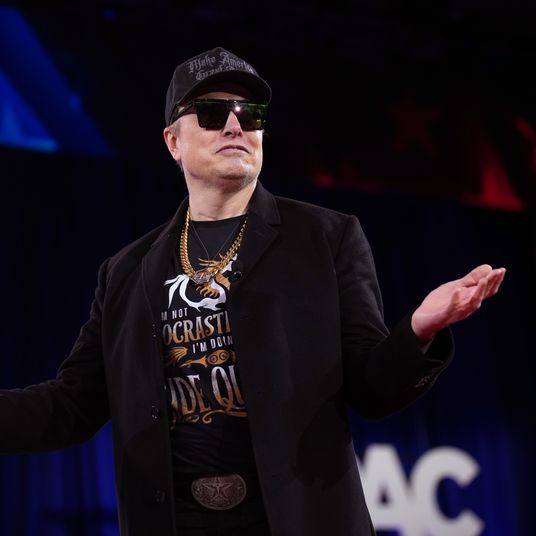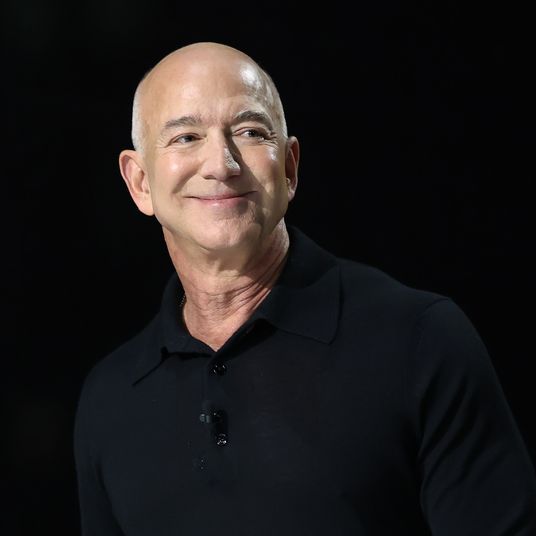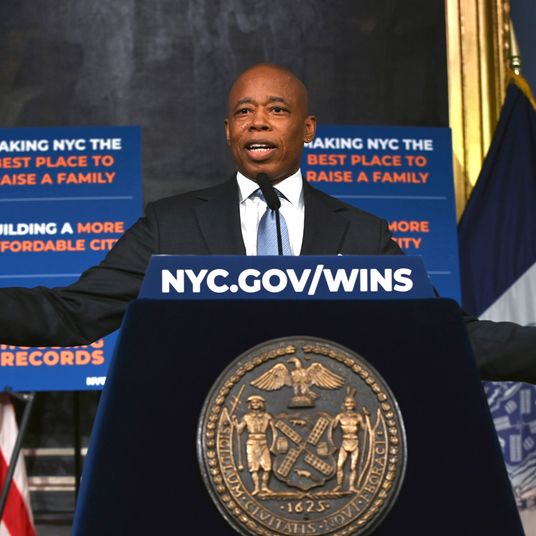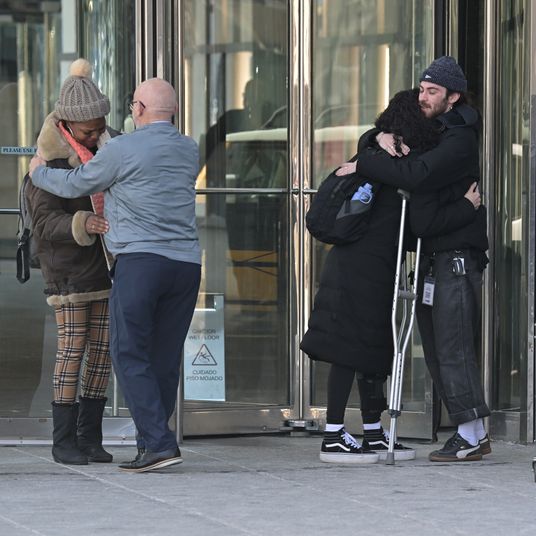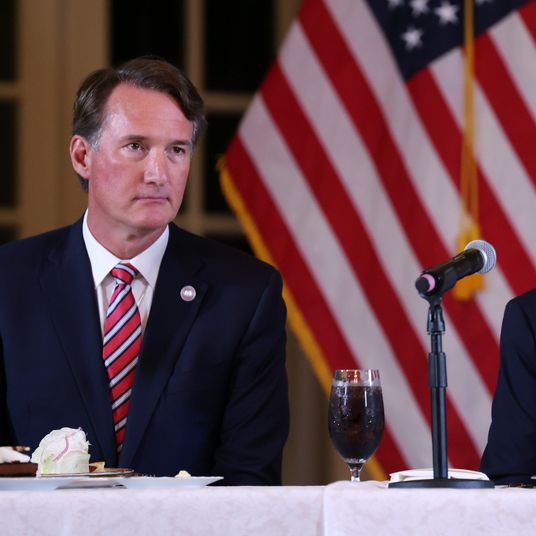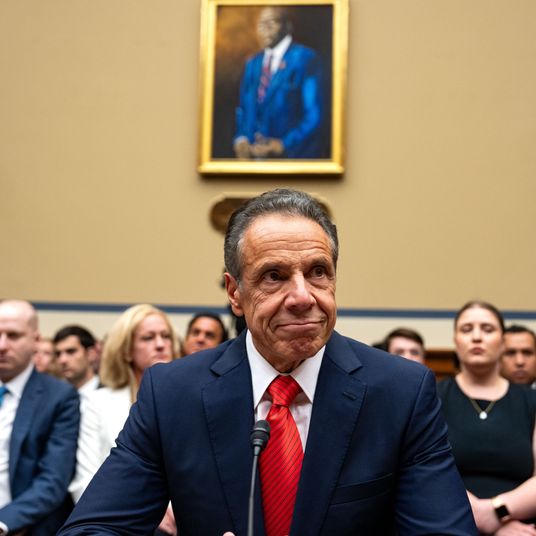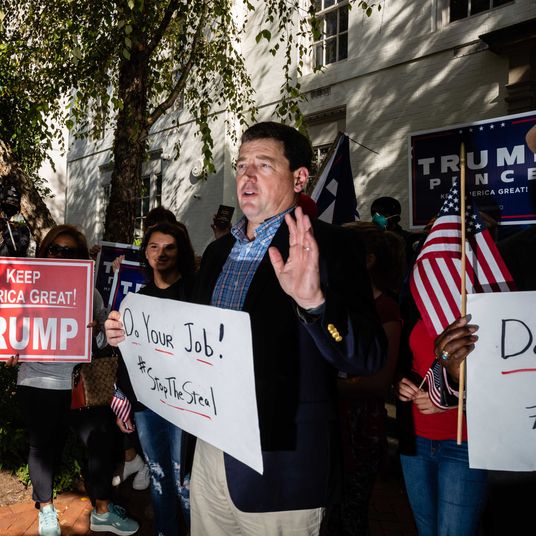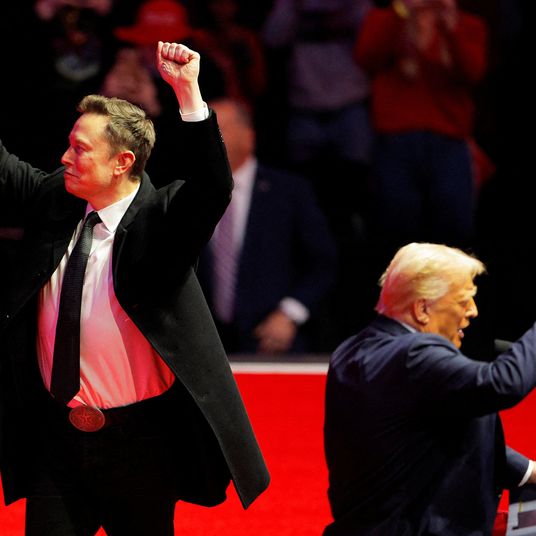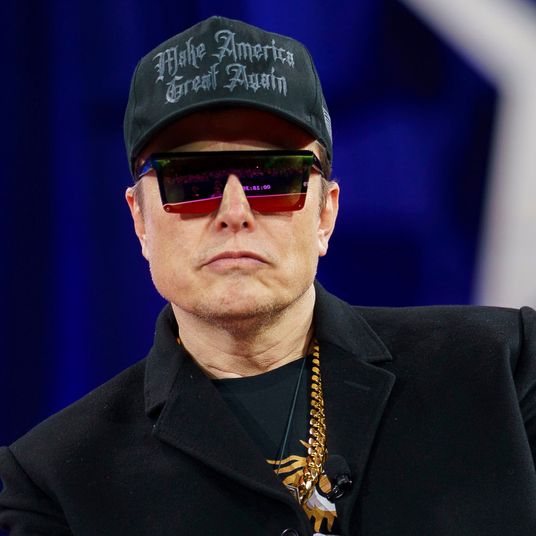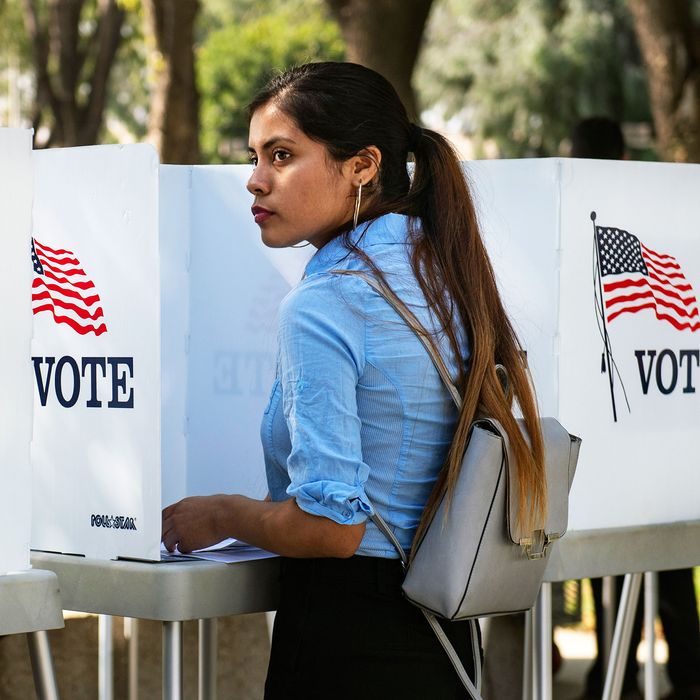
You’re right to be disillusioned. The American political system has given young people plenty of cause for deleting its number from our phones, unfriending it on Facebook, and cutting it out of our lives completely in a fit of self-care.
Electoral politics promised us a democracy, then let the Supreme Court pick our president; vowed to protect us from terror, then sent our friends to die for the cause of birthing ISIS; seduced us with sweet nothings about upward mobility and “the knowledge economy,” then buried us in our parents’ basements under a pile of student debt; gave us hope that an audacious young president would make change we could believe in — then bailed out the banks, foreclosed on our families, and delivered us into a nightmare parody of all that he was supposed to save us from. And now this sorry excuse for a republic has the temerity to ask us to study its byzantine voting rules, slip out of a job we can’t afford to lose in the middle of a Tuesday, and wait in line for hours to choose between a feckless donkey and a psychopathic elephant.
But unfollowing electoral politics won’t make it disappear. And our political system will only grow more dangerous without your voice in its ear. So if you’re among the 65 percent of those ages 18 to 29 who plan to sit out the midterms, please consider the following five reasons to go to the polls.
1. Playing hard to get will get you nothing.
➽ If you don’t like how a company does business, boycotting its products can (sometimes) be an effective means of forcing change, because corporations need your money to survive. But if you don’t like how politicians govern, boycotting elections will change nothing because the government doesn’t need your ballot to stay afloat. When left-wing millennials sit out elections, they don’t force Democrats to pay more attention to their interests; they make it easier for the entire political system to ignore their wishes by ensuring that no one in power will be worried about losing their support.
2. The size of your voting bloc matters.
➽ There are few things the GOP isn’t willing to do to please its donor class, but cutting boomers’ beloved benefits is one. AARP members owe this immense clout not to the militancy of their street protests or the wit of their Twitter owns, but to their singular propensity for showing up at the polls. If we followed their example, we’d have the numbers to make student-debt relief, public day-care, and any of our generation’s other policy priorities into a source of bipartisan consensus.
3. Voting for the lesser of two evils is great — that way you get less evil.
➽ The Democratic Party is a deeply flawed institution, complicit in economic inequality in the U.S. and in unjust wars overseas. But if millennials had voted at the same rate as our parents in 2016, in all probability hundreds of thousands of longtime legal U.S. residents wouldn’t be in danger of losing the right to live here, thousands of child migrants wouldn’t have suffered the trauma of “family separation,” the Supreme Court wouldn’t have approved Republican efforts to disenfranchise nonwhite voters in Ohio and Texas or undermined reproductive rights in California, the Education Department would not be restricting access to federal-student-loan forgiveness while relaxing oversight of predatory for-profit colleges, the EPA would not be comporting itself as a lobbying arm of the fossil-fuel industry, the Treasury would not have forfeited hundreds of billions of dollars to America’s wealthiest taxpayers, and everyone the world over would have been able to continue ignoring the existence of the American president’s Twitter account.
4. You’re (probably) better informed about politics than the average American voter.
➽ Many young people say they don’t “know enough about the issues” to vote. But we’re still far more in touch with reality than our elders. Millennials are more likely to accept that climate change is man-made, less likely to endorse prejudicial views of racial minorities and Islam, and far more liable to recognize Donald Trump’s unfitness for high office than any other generation of Americans. We also have important insights into many public-policy issues simply as a function of our lived experience. For example, American housing policy is profoundly biased in favor of homeowners. This fact has generated housing shortages in many cities. The overrepresentation of boomers in the electorate perpetuates these problems because they’re more likely to own homes. Only about a third of millennials are homeowners. If more millennials voted, it would likely increase the salience of renters’ interests in U.S. politics. Similarly, the existing electorate is much less likely to comprehend the broader material challenges younger Americans face: Despite the U.S. doing far less for its young people (in subsidizing education, job training, housing, and child care) than just about any other advanced democracy, a majority of boomers say the government “does enough for young people” (but still needs to do more for older folks).
5. If voting changed anything, they’d make it illegal — and they are.
➽ In 2008, young voters helped deliver North Carolina to Barack Obama. Shortly thereafter, Republicans in the Tar Heel State’s government revised voter-ID law to exclude student-ID cards. Eight other states have adopted similar restrictions. Just this year, New Hampshire passed a law that effectively imposes a poll tax on college students who wish to vote in the state, Florida’s Republican governor (and Senate candidate) Rick Scott tried to block early voting on university campuses, and state legislators in North Dakota have disenfranchised just about everyone who lives on a Native American reservation. Millennials may doubt their ability to effect change at the ballot box, but the powers that be sure don’t.
What’s at Stake This November?
An incomplete list of what the American electorate will be Deciding this fall (with or without your input).
Student Loans
Should the government help ease your student-loan debt?
The Democrats are the only party that has evinced any interest in providing relief to student debtors. If the GOP has a good night on November 6, it will likely lock Dems out of a Senate majority until after you’ve paid back every cent.
Health Insurance
Should the market decide what you pay for health insurance?
Majority Leader Mitch McConnell said he intends to revive efforts to repeal Obamacare if the GOP gains Senate seats. The House has already proposed a bill that would remove limits on what insurers can charge those with preexisting conditions.
Gerrymandering
Which party should get to decide how much your vote counts?
Whichever party wins the bulk of the 36 state gubernatorial races will have a greater hand in setting electoral-district boundaries when maps are redrawn in 2020 — thereby determining how much a millennial’s vote is worth in the next decade of House races.
Abortion
Should access to abortion be restricted?
If Republicans retain the Senate, Trump may be able to add another anti-choice justice to the Supreme Court. In Oregon, voters could ban the use of public funds for abortion, a measure that would limit access for low-income women.
Voting Laws
Who will get to vote in the future?
Nine states will vote on proposals shaping access to the ballot. In Florida, convicted felons who have served their time could regain the right to vote, while in North Carolina, a voter-ID requirement could be added to the state constitution.
Marijuana
Should you be able to legally smoke marijuana?
Five states will hold referenda on legalizing either recreational or medicinal marijuana. In North Dakota, the ballot measure would also expunge the convictions of North Dakotans whose need for weed once got them on the wrong side of the law.
Immigration
Should states and cities work with federal authorities?
This November, Oregon voters will have the opportunity to repeal their “sanctuary state” law. Meanwhile, the outcome of mayoral elections in several cities could influence how much cooperation police departments give to ICE.
Food Stamps
Should the government help you eat if you fall on hard times?
House Republicans already passed sweeping cuts to food stamps. If the GOP keeps the House and expands its Senate majority, those cuts to nutritional aid could become law.
Global Warming
Should you have any chance of living on a planet that isn’t a hellscape?
Five states will consider ballot measures aimed at reducing their reliance on fossil fuels. In some states, including New York, a liberal swing of the statehouse could usher in more aggressive climate legislation.
Corruption
Should the president have any incentive to follow the law?
A Democratic House is likely to investigate, among other things, whether Trump’s business interests are influencing his policies, whether his health department is sabotaging Obamacare, and whether the family-separation policy violated U.S. laws.
Download a pamphlet version of this article to give to a loved one who’s undecided about voting here.
*A version of this article appears in the October 29, 2018, issue of New York Magazine. Subscribe Now!







